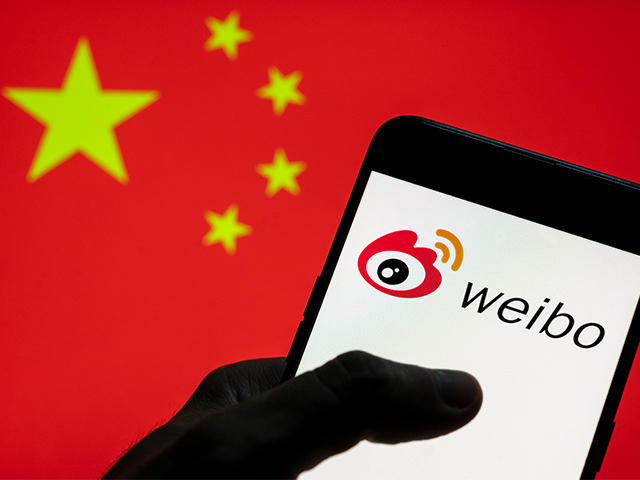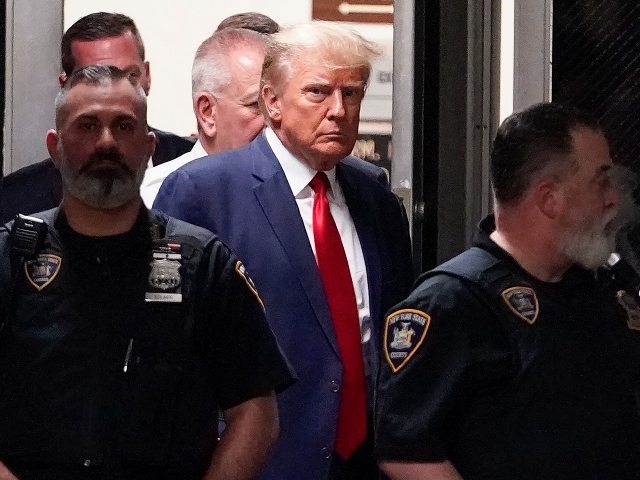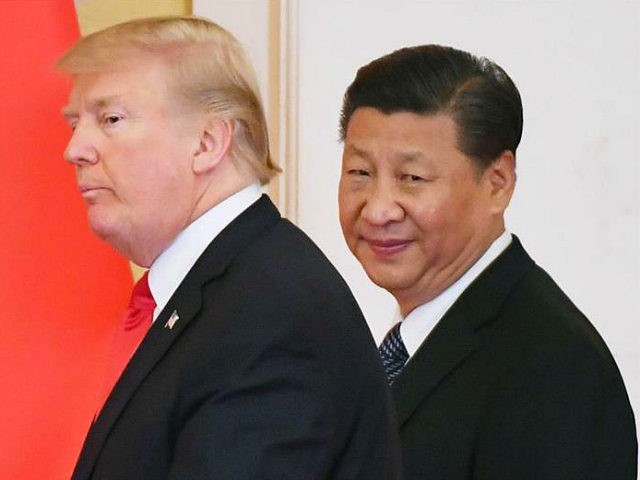Chinese Communist Party censors allowed users on its state-controlled site Weibo to comment extensively on the arrest of American former President Donald Trump on Tuesday, resulting in many cheering on the decline of the United States and predicting a civil war.
Trump was arrested and arraigned in Manhattan on Tuesday, indicted on 34 charges of fabricating business documents. The charges stem from alleged money paid to adult film star Stormy Daniels, according to Manhattan District Attorney Alvin Bragg. During remarks late Tuesday, Bragg claimed that the alleged fabrications were related to attempts to “cover up crimes relating to the 2016 election.”
Trump, shown in multiple polls to be the frontrunner for the Republican presidential nomination in 2024, described the charges on Tuesday as “massive election interference at a scale never seen before in our country.”
“This fake case was brought only to interfere with the upcoming 2024 election. And it should be dropped immediately,” he asserted.
Weibo, the most popular Chinese regime-approved social media site in the country, had the news of Trump’s arrest on its front page as of Wednesday morning Eastern time, flooded with thousands of user comments. As the Chinese government strictly censors any content it considers contrary to Communist Party ideology or the interests of dictator Xi Jinping, observers can consider the thousands of reactions to Trump’s arrest still publicly available to be consistent with Beijing’s stance. Many of the comments furthermore echoed propaganda in the pages of the Global Times and Xinhua News Agency, two of China’s biggest government-run propaganda sites.

The Chinese social media platform Weibo logo seen on a mobile device with the People’s Republic of China flag in the background. (Budrul Chukrut/SOPA Images/LightRocket via Getty Images)
Some comments, as translated by the BBC, predicted that Trump’s arrest would be the beginning of a “civil war” in America. Other users described the charges as “political persecution.” The Washington Post also documented the civil war predictions and noted that several commenters appeared to believe that Trump had already been convicted of the charges and would serve 136 years in prison (Trump faces a maximum of 136 years in prison but is unlikely to be sentenced so harshly if convicted). According to the Post, a Weibo hashtag on “Trump’s 136-year prison term” received 400 million views by Wednesday afternoon local time.
“I bet he will run for presidency again when freed at age 231,” one commenter joked.
Other comments on the Weibo page included users joking that America would not exist after 136 years and mocking Trump with the nickname “Comrade Jianguo,” which emerged during Trump’s presidency. The nickname, which means “build the country,” is meant to mock Trump by claiming that his American policies are hurting the United States and thus helping China progress.
Yet other users claimed that Trump’s arrest was a sign of the “Koreanization” of American politics, an apparent reference to the fact that South Korea has prosecuted multiple recent presidents, most prominently conservative ex-President Park Geun-hye. Park was sentenced to 24 years in prison in 2018 for, among other allegations, allowing a high-ranking member of a cult access to sensitive national security addresses. Leftist President Moon Jae-in pardoned Park in 2021.
The references to “Koreanization” by social media users appeared simultaneously to nearly identical language in the Global Times on Wednesday regarding the Trump case.
“Not only the unprecedented indictment against a former president is turning the White House into Cheong Wa Dae, or the Blue House presidential building of South Korea, it also revealed rifts of two different types of economies in the US,” the Global Times claimed. “Experts warn that such lethal conflicts will bring catastrophic consequences for the country.”

Former President Donald Trump arrives at court on Tuesday, April 4, 2023, in New York City for his arraignment. (AP Photo/Mary Altaffer)
The Global Times‘ “experts” are a small stable of government-approved commentators, often professors or think tank analysts. One such expert, Renmin University’s Jin Canrong, suggested that the Trump indictment was reminiscent of the era prior to the U.S. civil war.
“Jin believed the scuffle between different kinds of capitals is more lethal for the US, citing American civil war,” the propaganda newspaper claimed, “which bred out because of the conflicts between the commercial and manufacturing economy in the North and the agricultural economy in the South.”
The Global Times concluded that the Trump indictment was part of “a more toxic trend in US’ already chaotic political circle.”
The rhetoric in China’s state-run media appeared significantly more aggressive in Chinese text than in English. Xinhua published an article proclaiming, according to translations by the Washington Post, that the arrest “epitomizes social divide, systemic alienation, and political and cultural decay” in the “Divided States of America.”
Calling the arrest “a new climax in American political chaos,” Xinhua insisted that Trump was not a “victim” because he had denounced potentially illicit financial actions by the family of President Joe Biden and he had withdrawn from the Paris Climate Agreement and the Iran nuclear deal.
“No one is innocent on the issue of party disputes,” Xinhua insisted.
Xinhua’s English-language coverage merely concluded that the arrest was “yet another clear reminder of how U.S. politicians get lost in divisive partisan politics, leaving America’s body politic increasingly dysfunctional.”

COMMENTS
Please let us know if you're having issues with commenting.